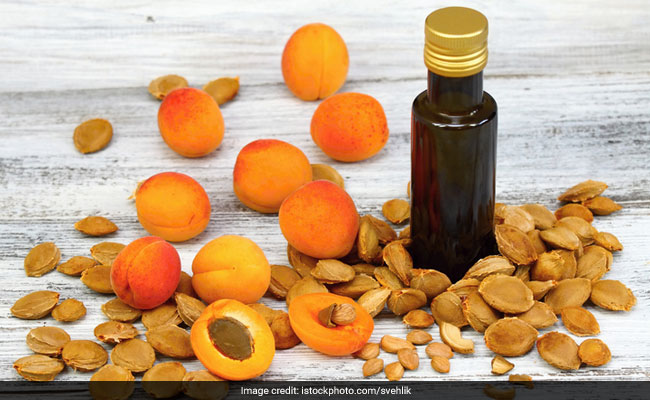ESSENTIAL OILS
Apricot Oil

Apricot health benefits: Its good for not just your skin but hair and body too
Apricot oil which is also called the apricot kernel oil is thin, odorless oil pressed from the seed or kernel of the apricot. It is one oil that many people do not even know about its existence. The oil is quite light and has a nutty, aromatic flavor, making it a popular addition to many culinary efforts in certain parts of the world. There are two different varieties of apricot kernel oil one which is used for cosmetic purposes and the other for culinary consumption. This oil has high levels of vitamin E, vitamin K, and a number of powerful antioxidants, such as caffeic acid and various catechins, all of which add to the health benefits of this oil. It is commonly used in the world of massage. It is versatile and possesses multiple benefits, depending upon how you choose to use it.
Avocado Oil
AVOCADOS ARE A versatile stone fruit that provide a lot of health benefits. They make great additions to salads and salsas and can be enjoyed in a range of dishes. Widely regarded as a superfood, avocados provide lots of fiber, healthy fat and plenty of vitamins, and their popularity is growing. Whether enjoying mashed avocado on toast or a healthy smoothie add-in, Americans have embraced this fatty fruit.

While avocados themselves have gained a wide following, their oil is still somewhat less widely used. But if you’re looking for a heart-healthy oil for cooking, salad dressings, and other uses, it may be a great option.
The U.S. Department of Agriculture reports that a tablespoon of avocado oil contains:
- Calories: 124.
- Fat: 14 grams.
- Carbohydrates: 0 grams.
- Protein: 0 grams.
- Fiber: 0 grams.
- Sugars: 0 grams.
- Sodium: 1 milligram.
As you can see, avocado oil is pretty much exclusively fat. But there’s more to the story. There are actually three types of fat in avocado oil, and a tablespoon of avocado oil contains:
-
- Monounsaturated fat: 10 grams.
- Polyunsaturated fat: 2 grams.
- Saturated fat: 2 grams.
- BLACK SEED OIL
